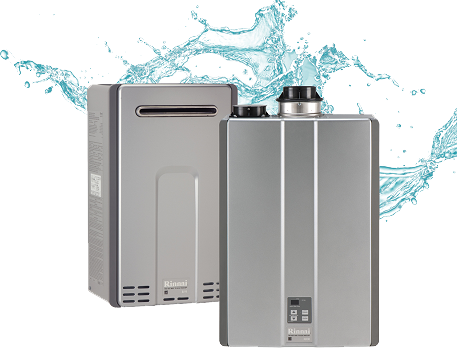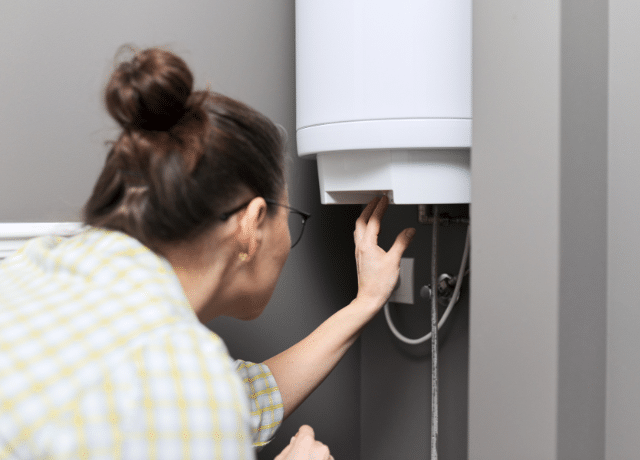Just how do you feel when it comes to Unveiling the Hot Trend: The Benefits of Tankless Water?

In a world where convenience and efficiency preponderate, it's no surprise that property owners are continuously looking for smarter means to handle their home's power intake and convenience. One innovation that has steadily gotten popularity is the tankless hot water heater. But just what makes these systems attract attention from the conventional tank-based versions most of us grew up with? Let's dive in and check out the benefits of tankless water heaters, assisting you decide if it's time to make the button in your house.
Introduction
Picture this: you enter the shower after a long day, expecting a relaxing cascade of warm water, only to be welcomed by icy droplets due to the fact that the last individual used all of it up. Sound familiar? Conventional water heaters store a set quantity of warm water, meaning you go to the grace of that container's supply. Tankless systems, on the other hand, warmth water on demand. No more running out mid-shower, no more fumbling with schedules just to ensure hot water is readily available.
Understanding Tankless Hot Water Heater
What Are Tankless Water Heaters?
Tankless hot water heater, often called on-demand or immediate water heaters, provide warm water only as it's needed. As opposed to storing gallons of pre-heated water, these units kick right into action the minute you switch on the tap. Water passes through a warmth exchanger, warming up in real-time, indicating you get a continuous circulation of hot water without the need for a big container sitting lazily by.
How Do They Vary from Typical Systems?
Standard heating units hold a storage tank of warm water, using power to keep that storage tank at a constant temperature. Tankless devices get rid of the standing supply, minimizing thrown away energy and the large footprint of a huge cyndrical tube. Basically, you're updating from a "stockpile" frame of mind to a "made-to-order" approach.
Typical Types of Tankless Devices
Tankless water heaters normally are available in two selections: gas and electric. Gas versions tend to supply greater flow prices, suitable for bigger households, while electric designs frequently serve smaller sized homes and are normally simpler to set up. Furthermore, some systems are designed for point-of-use (offering one component) while others can manage the whole home's hot water needs.
Trick Advantages of Tankless Hot Water Heater
Energy Effectiveness and Cost Financial Savings
No more heating up a giant tank's well worth of water and keeping it warm all day. Tankless heating systems minimize standby power losses, which can lower energy bills. While the first cost could be higher, the lasting cost savings typically validate the financial investment.
3. Space-Saving Design
If your home is short on storage space, eliminating the bulky container maximizes beneficial room. Tankless systems are compact and can often be mounted on walls, tucked away in edges, or installed in limited energy wardrobes without having all to oneself the whole area.
4. Longer Life-span
A properly maintained tankless hot water heater can outlast its tank-based relative. Conventional tanks might last 10-15 years, while tankless models can keep downing along for two decades or more, making them a solid financial investment with time.
1. Countless Hot Water Supply
Ever had to set up showers so everyone gets their reasonable share of warm water? With tankless, that comes to be a distant memory. As long as the heating system's circulation ability isn't exceeded, you can take back-to-back showers without turning into a popsicle.
5. Improved Water High Quality
Keeping water in a tank can in some cases lead to debris build-up or a slightly "off" preference. With tankless systems, fresh water is heated right away, reducing the opportunities of sediment accumulation and possibly providing cleaner-tasting water.
Factors to consider Before Switching
Though the benefits are engaging, it's a good idea to think about a few elements prior to totally dedicating.
Assessing Your Home's Water Usage Patterns
If your home all at once utilizes multiple components with high hot water need, make sure the unit's flow price fulfills your requirements. Understanding your usage patterns assists you pick the best dimension and type of tankless heating unit.
Maintenance and Care Tips
Tankless systems are relatively low maintenance, but they aren't set-it-and-forget-it devices.
Normal Cleansing and Descaling
Difficult water minerals can accumulate in the heat exchanger, influencing performance. Regular descaling (often suggested every year) maintains the unit running at peak performance.
Yearly Expert Evaluations
A yearly checkup from a professional makes sure small concerns are caught early. They'll analyze the system's efficiency, seek leaks, and help keep optimal efficiency.
First Investment Costs
Tankless heaters generally feature a higher in advance price tag. In between the system itself and prospective setup alterations, the initial cost might provide you sticker shock. But bear in mind to view it as a long-term investment.
Setup Requirements
Depending upon your home's framework, you might require additional electric capability or gas line upgrades. Ensure you understand the installation requirements and consult with a specialist to stay clear of shocks.
Making Certain Correct Ventilation
For gas models, correct air flow is necessary to safely expel exhaust gases. Make certain airing vent systems are clean and properly set up to stop any type of prospective safety and security dangers.
Contrasting Different Brands and Versions
Not all tankless hot water heater are produced equal.
Researching Trusted Producers
Search for trusted brand names with a background of producing high quality units. A reliable maker usually provides much better consumer support and longer guarantees.
Installation: Do It Yourself or Expert?
While some property owners enjoy tackling tasks themselves, tankless installation may not be the very best time to burst out the tool kit.
Benefits and drawbacks of Do It Yourself Installation
A do it yourself install could save cash, yet it comes with dangers. Incorrect installation can bring about inadequacy or safety worries. If you're handy and have experience, it might be viable-- however wage care.
Checking Out Testimonials and User Responses
User evaluations and responses from next-door neighbors or buddies who have gone tankless can supply valuable insights. Sometimes, real-life experiences can be a lot more informing than advertising sales brochures.
When to Call a Specialist Plumbing Technician
For a lot of, calling a pro guarantees whatever's done properly. An expert plumbing professional recognizes neighborhood codes, sizing demands, and venting criteria, decreasing the risk of accidents.
Making the most of Effectiveness
You've bought a tankless unit-- now optimize its effectiveness.
Optimal Temperature Level Setups
Most individuals establish their units in between 120-140 F. Adjusting the temperature can improve convenience and cost savings. Experiment to locate a pleasant area that doesn't waste power.
Coupling With Low-Flow Fixtures
Intend to extend your unit's capacities? Think about installing low-flow showerheads and taps. They minimize water use, permitting your tankless system to supply a consistent stream of warm water without straining.
Ecological Impact
Tankless water heaters line up with greener living goals.
Reduced Carbon Footprint
By utilizing less energy and only heating water as required, tankless systems can lower your home's carbon impact, decreasing your environmental influence.
Preserving Natural Resources
Less energy usage and much less lost hot water convert right into fewer natural resources being made use of, an ecological win-win.
Who Benefits Many from Tankless Heaters?
The beauty of tankless heaters is that they can match a range of houses.
Big Households vs. Single Residents
Large family members could like the limitless hot water supply, while solitary residents value the energy savings from not heating up an entire storage tank for simply one person's morning shower.
Home Owners with Minimal Room
If your home is short on square video footage, losing the cumbersome container liberates space for various other essentials-- or possibly simply more elbow room.
Eco-Conscious Customers
Going tankless aligns with environmentally friendly values, guaranteeing you're not throwing away energy or resources.
Future Fads in Tankless Hot Water Heater
The globe of home devices is ever-evolving, and tankless water heaters are no exception.
Developments in Technology
R&D is frequently improving warmth exchangers, making systems more reliable and long lasting. Future designs may be also quieter, much more small, and better suited for varying environments.
Smart Home Integration
Imagine changing your hot water heater's temperature through an application or receiving upkeep alerts on your phone. As clever home tech developments, we'll see more connection and benefit.
Final thought
Selecting a tankless hot water heater is more than just updating your home's warm water system; it's purchasing long-term convenience, power efficiency, and a greener way of living. By considering your home's water usage, bearing in mind installment requirements, and committing to regular upkeep, you can enjoy a consistent stream of hot water without the baggage of a large container. As modern technology develops, you can anticipate even smarter, a lot more effective tankless remedies that not only make your life easier yet likewise profit the world.
Why You Should Consider a Tankless Water Heater for Your Home
Energy Efficiency and Cost Savings
Tankless water heaters, also known as on-demand water heaters, heat water only when needed. This means they don't waste energy keeping a tank of water hot constantly. This efficiency translates into substantial cost savings on your monthly energy bills.
Endless Hot Water Supply
One of the significant advantages of tankless water heaters is their ability to provide a continuous supply of hot water. Traditional tank water heaters have a limited capacity and can run out of hot water, especially during peak usage times. In contrast, tankless water heaters can provide an endless stream of hot water, making them ideal for larger families or homes with high water usage.
Space-Saving Design
Tankless water heaters are compact and take up significantly less space compared to traditional tank heaters. They can be installed on walls, under cabinets, or even outside, freeing up valuable space in your home. This makes tankless water heaters a great option for smaller homes or properties with limited space for a traditional water heater.
Longer Lifespan and Lower Maintenance
Tankless water heaters typically have a longer lifespan compared to traditional tank heaters. They can last up to 20 years or more with proper maintenance. Additionally, tankless systems are designed with replaceable parts, which can extend their lifespan further and reduce long-term maintenance costs.
Environmentally Friendly
Reducing energy consumption not only saves you money but also benefits the environment. Tankless water heaters contribute to a smaller carbon footprint by using less energy to heat water. Their energy efficiency and ability to minimize standby heat loss make them an eco-friendly choice for environmentally conscious homeowners.
Customized Temperature Control
Tankless water heaters offer precise temperature control, allowing you to set the desired temperature to meet your specific needs. This level of customization ensures you always have water at the perfect temperature for your comfort and usage requirements.
https://beantownservices.com/blog/consider-tankless-water-heater-for-your-home

I am very fascinated with and I am hoping you liked our piece. Are you aware of someone else who is fascinated with the subject? Why not promote it. I thank you for reading our article about .
Visit Link